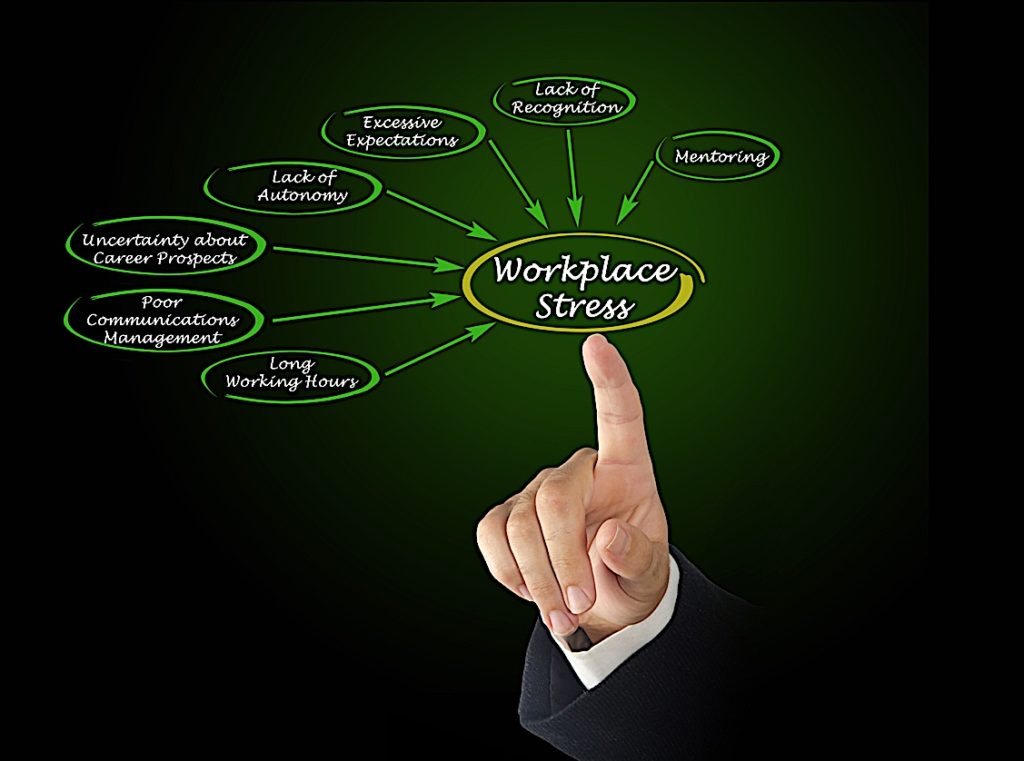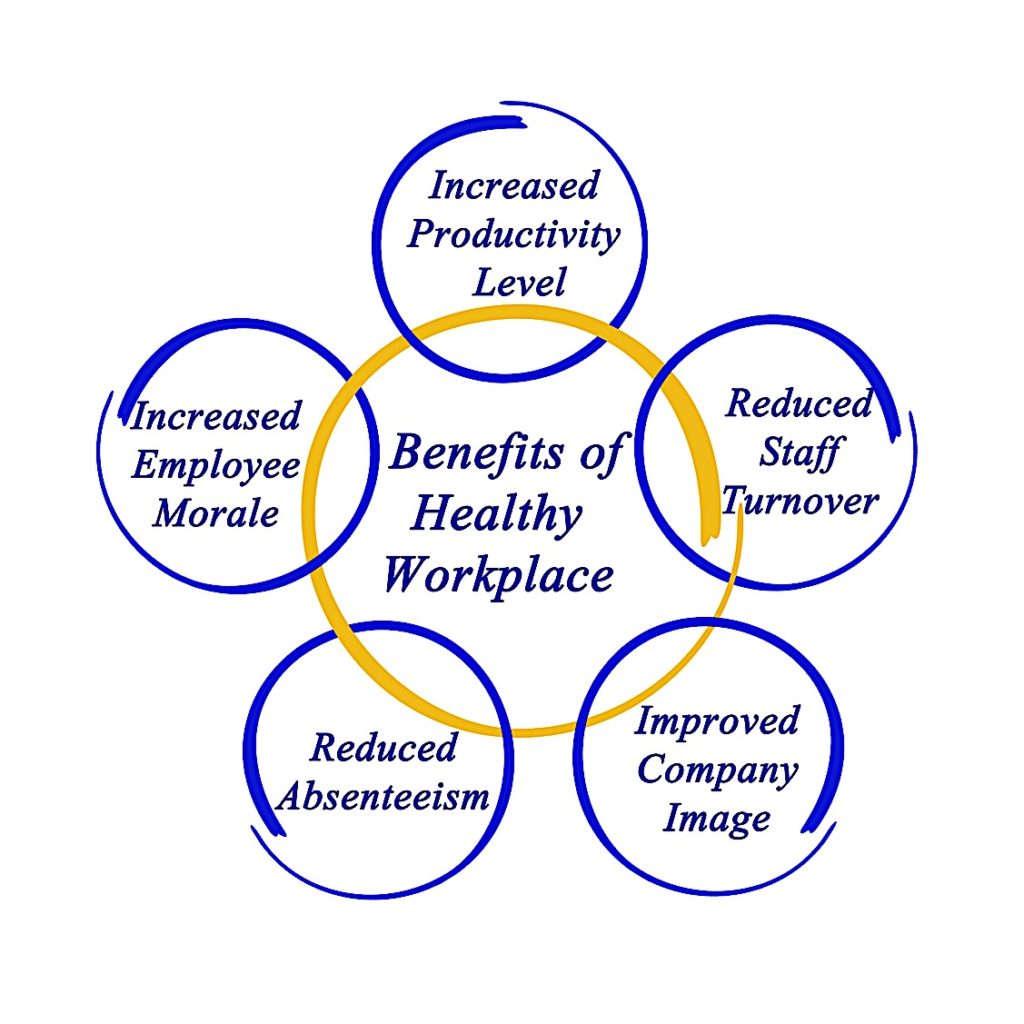
Why you need a “Chief Employee Experience Officer”: 80% of Canadian employees feel employer’s duty includes keeping them healthy
In a recent survey of Canadian Employees, nearly 80 per cent felt strongly that it is the employer’s obligation and duty to keep them healthy — both mental and physical health.[1] The survey, commissioned by Staples Inc, is not the first study to support the importance of employer health support in the form of benefits packages, and as activities, rewards, stress reduction, and personal growth or training.
Stress Kills
Not only is stress a killer in health terms, but it’s also a killer regarding productivity. Many companies have implemented group plans, mental health days, and retreats and social occasions to help alleviate the causes of stress.

A study by Indiana University of 2,363 workers over a seven-year period found that “individuals in low-control jobs, high job demands are associated with a 15.4 percent increase in the likelihood of death, compared to low job demands.” [2] Erik Gonzalez-Mulé, assistant professor of organizational behavior, authored the ominous sounding research paper “Worked to Death”, where he wrote:
“These findings suggest that stressful jobs have clear negative consequences for employee health when paired with low freedom in decision-making, while stressful jobs can actually be beneficial to employee health if also paired with freedom in decision-making.”
Stress kills productivity
In the Staples survey, the key points included:
- Workplace stress: 72 per cent responded that workplace stress caused issues in health and energy
- Inhibits learning and growth: 60 percent indicated that stress directly inhibited learning
- Mental health days: 36 percent had taken mental health days this year
- Work from home: 40 per cent said they look for an employer who allows working from home at least one day a week — and that it’s a major factor in deciding on an employer
- Workplace distractions: 39 per cent of people who work in “open office” environments found it distracting to their work and 45 per cent reported overhearing personal conversations during work hours.

Chief Employee Experience Officer? Really?
What is it? Why do we need one? Although it’s a new-ish concept — in the past, a role typically contained within the responsibilities of the chief HR officer or the outsourced HR Managers — a dedicated “Chief Employee Experience Officer” (Teamwork) is something to consider if you have morale, stress or productivity issues. It doesn’t have to be set out as a title, but the roles and responsibilities of a CEEO could be vital to boosting productivity and attracting the best talent to your company. It also is not some lightweight attempt to organize office parties, events, and incentives — although this can be part of an overall program. The main touch points for a CEEO are things such as flexible work schedules, ensuring company integrity, promoting and rewarding good performance, and encouraging a team — rather than competitive — environment.
A good first step is to outsource the role to an HR Management Service with experience in working with workplace stress and employee morale. Aside from expertise, an outsourced HR Management Service can handle this more efficiently, since this type of task, if handled internally, tends to be “low priority.” The reason? You guessed it — the stress and workload in the office. HR officers are under pressure as much as other employees.
Airbnb is known as one of the first to dedicate an officer to the role, back in 2015, but today other companies such as Meridian Credit Union have dedicated CEEOs or have outsourced the role. Anne Berend, CEEOat Meridian Credit Union, explained [1]:
“The CEEO is really about enabling an integrated and aligned approach to creating that exceptional employee experience… things like worrying about the kind of technology employees need, how do we enable innovation in their day-to-day work, how do we really make sure employees are happy, healthy and engaged.”
What are the big four “experience” factors?
According to a research project, “2016 WorkTrends employee experience index study”, the top factors are:
- Flexible work schedule: although this obviously is a time-consuming management task to implement, 79 per cent of employees in the study indicated they felt more positive about their work experience is permitted flexibility.
- Rewards, recognition, and promotions: 83 per cent of employees rate this as important to positive work experience.
- Team work and helping others; fostering a team environment (rather than a cut-throat competitive workplace) contributes to a positive work experience reports 77 percent of surveyed employees
- Integrity: knowing their company has “consistent” integrity and honesty is important to 83 per cent of respondents.
Either an outsourced HR Management team with CEEO experience, or an HR manager internally who has the time for this role, can make sure these four experience factors are incorporated into a health work environment.
Do you have questions about this feature or topic? Ask the HR Management experts at Pivotal HR Solutions.
Contact Pivotal
NOTE:
[1] Benefits Canada.
[2] “Worked to death? IU study says lack of control over high-stress jobs leads to an early grave.” EurekAlert!


 Our HR solutions experts can recommend the right mix of HR outsourced services to make your entry into Canada easier.
Our HR solutions experts can recommend the right mix of HR outsourced services to make your entry into Canada easier.  Pivotal Employment Management Services co-hires your workforce, simplifying entry of your business in Canada.
Pivotal Employment Management Services co-hires your workforce, simplifying entry of your business in Canada. 















